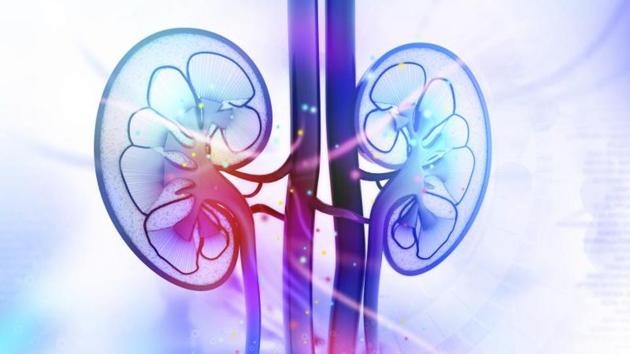
Protect Your Kidneys: Doctor’s Must-Know Tips for Diabetics
29 days ago | 5 Views
As the incidence of diabetes continues to increase nationwide, there has been a notable rise in diabetic individuals experiencing chronic kidney disease (CKD). Diabetes ranks among the primary contributors to kidney failure, underscoring the importance for those with diabetes to monitor their kidney health closely.
Essential Information for Diabetics to Consider Before It's Too Late
Prolonged high blood sugar levels can harm the fragile blood vessels in the kidneys, diminishing their capacity to effectively filter waste. Experts stress the importance of early detection, lifestyle changes, and regular screenings to address the growing prevalence of CKD in diabetic patients.
In a discussion with Dr. Chintan Gandhi, a Nephrologist at Zynova Shalby Hospital, he stated, “Diabetes compromises kidney function by hindering their waste filtration capabilities due to elevated blood sugar levels and hypertension. Chronic Kidney Disease (CKD) occurs when the kidneys can no longer adequately filter waste and excess fluids from the body.”

Discussing the warning signs, he noted that symptoms like leg swelling, fatigue, nausea, frequent urination, and difficulty concentrating typically manifest in the later stages of the condition. If not addressed, chronic kidney disease (CKD) can result in serious complications, including heart disease, anemia, and kidney failure, which may necessitate dialysis or transplantation.
Health professionals have previously indicated that poorly managed blood sugar levels increase the likelihood of kidney disease among diabetic patients, with around a 10% increase in those affected. Furthermore, symptoms such as swelling in the hands and feet, shortness of breath, weight loss, nausea, and vomiting can signal the presence of kidney disease.
A kidney health checklist for diabetics
Dr. Gandhi advised that diabetic individuals should take proactive measures to safeguard their kidney health. It is crucial to maintain optimal blood sugar and blood pressure levels through a balanced diet, regular physical activity, and appropriate medication. Kidney function tests, including urine and blood analyses, are vital for the early detection of issues, enabling timely intervention.

He also recommended, "Patients with diabetes who experience significant kidney damage may require dialysis. Nevertheless, a kidney transplant is considered a last option. The physician will determine the patient's eligibility for a transplant to enhance their quality of life. Additionally, minimizing salt consumption, engaging in regular physical activity, maintaining proper hydration, and abstaining from smoking and excessive alcohol can help decrease the likelihood of developing kidney disease."
Read Also: Upasana Konidela on Egg Freezing: A Woman’s Power Move for the Future
Get the latest Bollywood entertainment news, trending celebrity news, latest celebrity news, new movie reviews, latest entertainment news, latest Bollywood news, and Bollywood celebrity fashion & style updates!





















